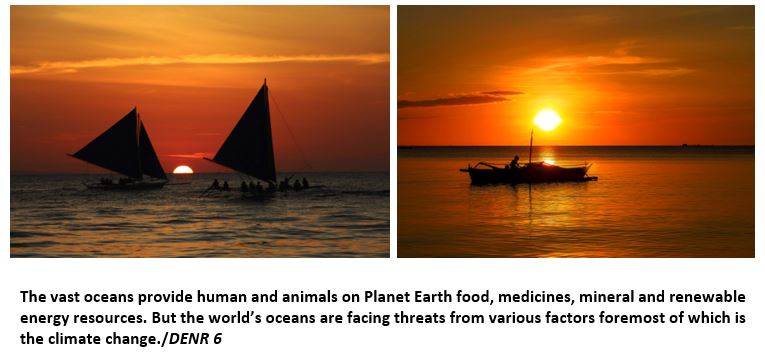
Watching a beautiful sun sets behind the vast ocean evokes a feeling of calm within a human heart. Many people find it therapeutic. But have you ever thought how else the ocean impacts our lives?
If not for the oceans, the world’s atmosphere would be intolerable. This is because oceans absorb solar radiation and release heat needed to drive the atmospheric circulation. The oceans are also responsible for absorbing carbon dioxide from the atmosphere and store it for years, even millions of years. Thanks to microscopic marine algae called Phytoplankton which makes the ocean the world’s biggest carbon sink. Phytoplanktons absorb carbon the way all the plants and trees on land do.
Despite acting as a great carbon sink, this never poses danger to the marine ecosystem which has the greatest biodiversity on Earth. It is said that half of the known species on this planet live in the oceans.
“Our oceans are a source of nutrition, food, medicines, and renewable energy sources, and even leisure. We used to think that when we throw our trash into the ocean it would simply be cleaned out of existence. Truth is, ocean pollution is now one of the hardest battles we are fighting. We are having a tough time cleaning up our mess,” said DENR 6 Regional Executive Director Livino B. Duran.
“We are calling on each and every resident in Western Visayas to be aware of how our mismanaged wastes impact on our oceans, rivers, and streams and eventually, our health. What little we can do, when do it collectively, can help a lot in cleaning up our marine ecosystem,” Director Duran added.
The Department of Environment and Natural Resources (DENR) celebrates this year’s Month of the Ocean with the theme: Protect and Restore Ecosystems and Biodiversity and continues to campaign for ocean protection and restoration of our planet’s vitality.
Ocean serves as the foundation of many of the economies in the world. It provides support to various sectors such as tourism, fisheries and international shipping. Ocean is touted as the “super highway” that helps to link economies together and transport goods and people across the globe. Despite such importance however, the world’s ocean health faces its biggest threats – climate change and plastic pollution.
Climate change disrupted the balance in ocean carbon cycle and has damaged coral reefs due to increasing temperatures which causes coral bleaching. As a result, breeding grounds for marine fishes and mammals are damaged. Meanwhile, plastic pollution caused marine animals to suffocate, starve or drown as their stomachs get filled with plastic. Unlike humans, marine animals see plastic waste as prey.
As inhabitants of this planet, our health is at stake, too. When we keep the ocean healthy, it continues to provide us with the things we need to keep a healthy and happy existence./DENR 6
- Details
- Parent Category: News & Events
- Category: Press Releases
- Published: 20 May 2022


